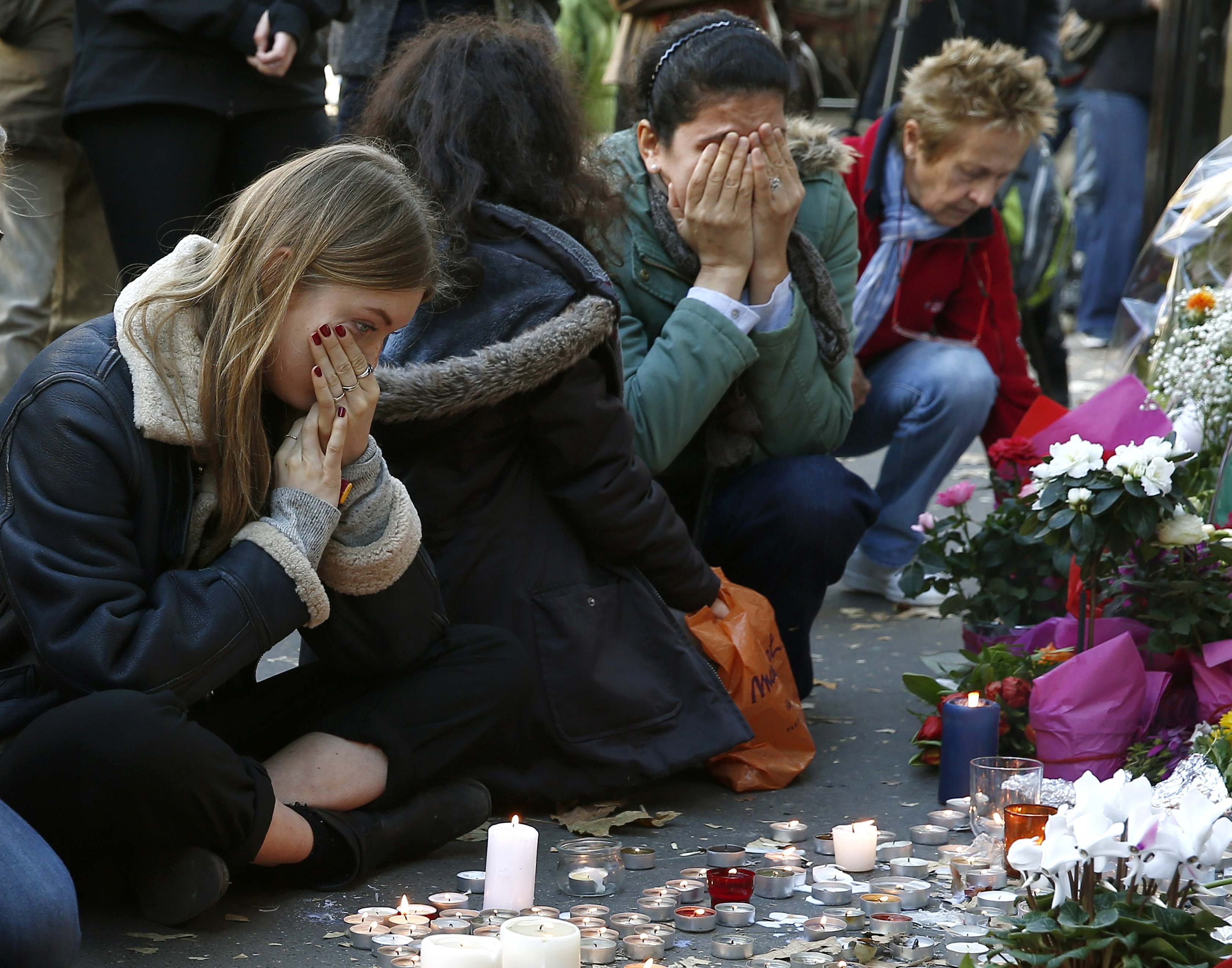Paris terrorist attacks of 2015 were two series of violent acts in and around Paris, France, in 2015. The first attacks took place over three days in January and killed 17 people. Islamic terrorists carried out the attacks, which centered on a French weekly newspaper called Charlie Hebdo and a supermarket called Hyper Cacher. On November 13, a series of terrorist attacks killed 129 people at different locations in and near Paris. Another person injured on the day of the attacks died several days later. The November attacks were the deadliest in Paris since the end of World War II (1939-1945).
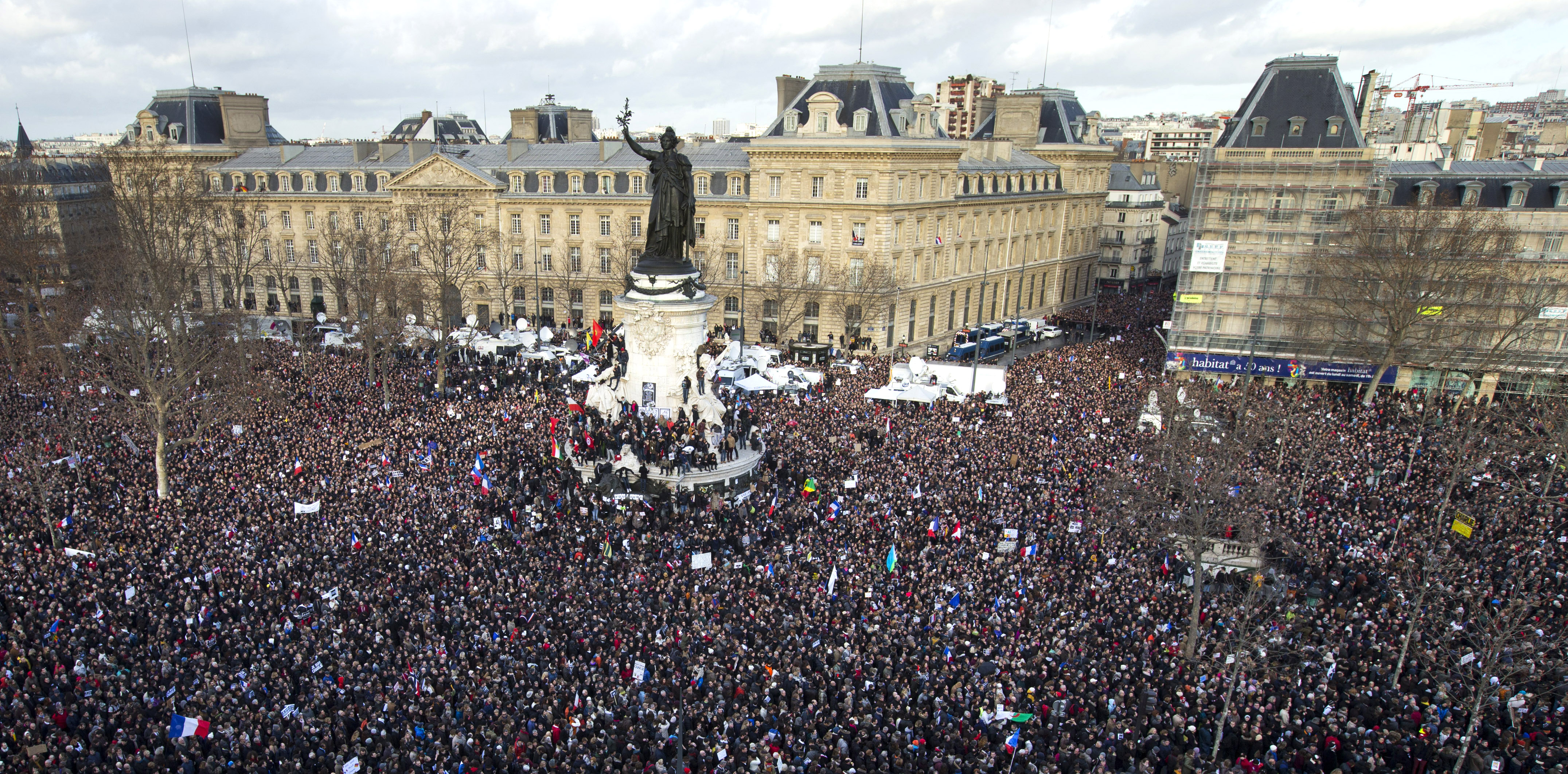
The January attacks
Background.
Charlie Hebdo had become known for its satire (wit and mockery) and cartoons about culture, politics, and religion. The name Charlie pays tribute to Charlie Brown, star of the American comic strip “Peanuts.” Hebdo is short for the French word hebdomadaire (weekly). Islamic terrorists targeted Charlie Hebdo after the paper published satirical images of Muhammad, the prophet whose life and teachings form the basis of Islam. Islamic tradition prohibits the creation of certain images, including those of Muhammad and Allah (God). Charlie Hebdo’s earlier cartoons of Muhammad had been linked to a 2011 overnight firebombing of the paper’s offices. That attack caused much damage but no injuries. 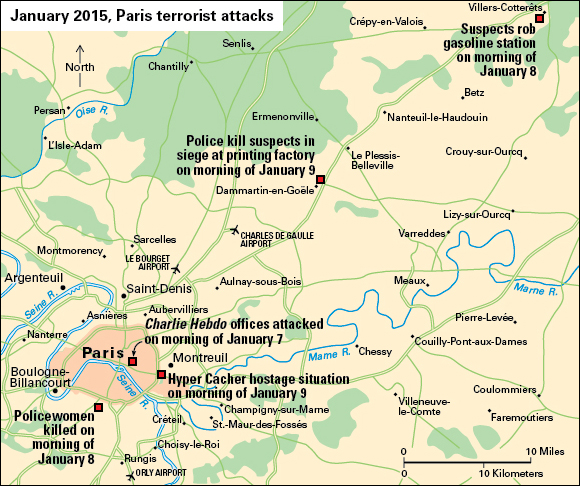
Hyper Cacher is a kosher supermarket. Kosher food is prepared according to Jewish dietary laws. Tension between Jews and Islamic Arabs—largely over the existence of Israel—has caused violence in the Middle East and elsewhere for decades.
The
On Jan. 7, 2015, two gunmen—French citizens with close ties to Islamic terrorist groups—attacked the offices of Charlie Hebdo in central Paris. They killed 11 people, including the paper’s editor, Stéphane Charbonnier, and a police officer assigned to protect Charbonnier. The attackers fled after the shootings and killed another police officer on a nearby street. On January 8, police located the gunmen after the gunmen robbed a gas station northeast of Paris. On January 9, police killed the gunmen after a standoff at a factory in the small town of Dammartin-en-Goële.
The Hyper Cacher attack.
On January 8, a lone gunman—also a French citizen with ties to Islamic terrorist groups—killed a police officer in a Paris suburb. Police pursued the gunman, who took several people hostage in the Hyper Cacher market in eastern Paris. The gunman threatened to kill the hostages if the Charlie Hebdo attackers were arrested or harmed. On January 9, shortly after police killed the Charlie Hebdo gunmen, police killed the lone gunman in the market. Fifteen hostages were rescued, but the gunman had already killed four people.
Reaction and responsibility.
The attack on Charlie Hebdo drew a strong reaction from observers throughout the world. In Paris and other cities, millions of people marched in opposition to the attack and in support of free speech and expression. Je suis Charlie (I am Charlie) became a worldwide slogan of support for the victims of the attack.
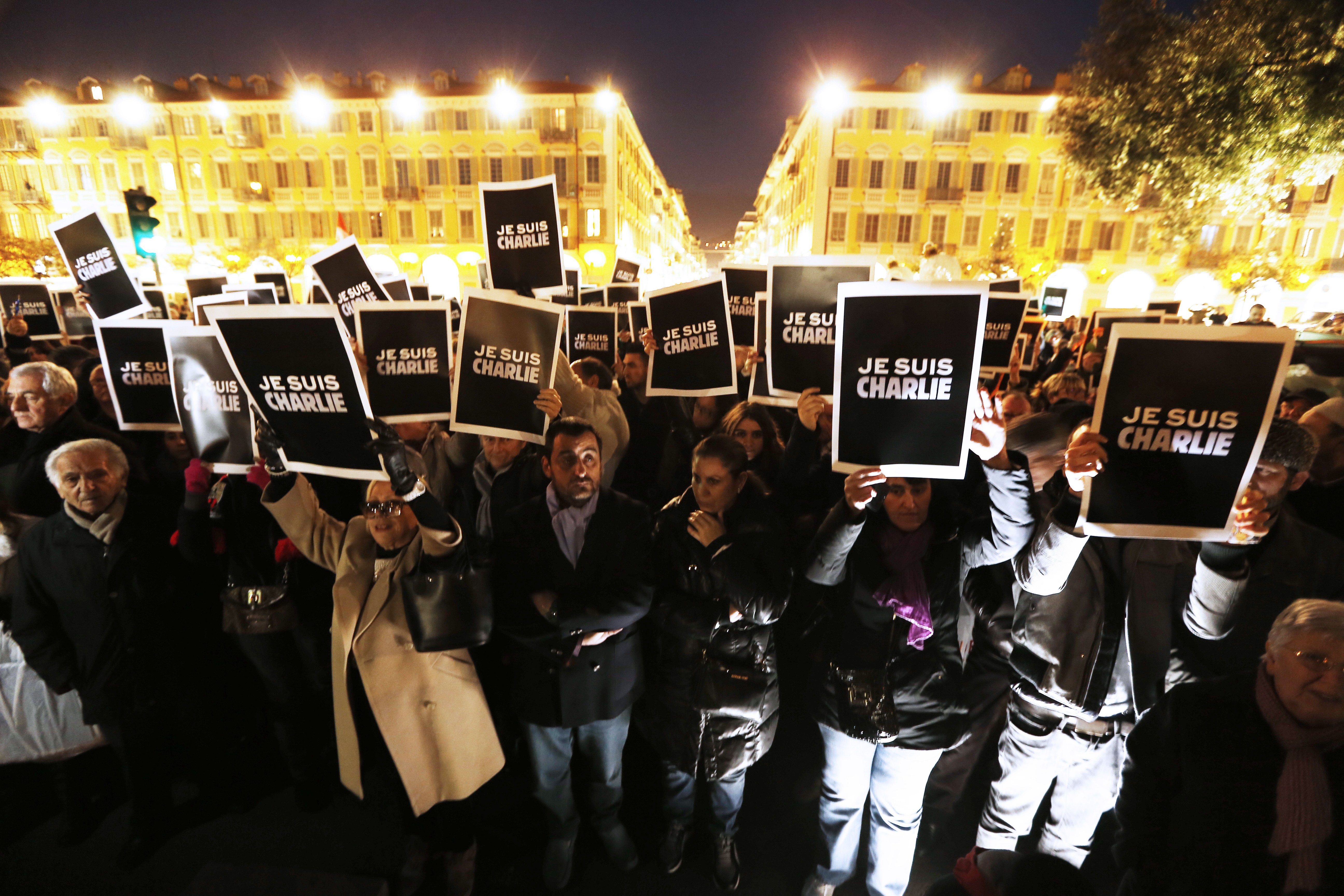
The terrorist group al-Qa`ida in the Arabian Peninsula (AQAP) claimed responsibility for the Charlie Hebdo attack. Investigations showed that the gunmen had traveled to Yemen, where AQAP is based, but there was no proof that the group directly supported the attack. The Hyper Cacher gunman had earlier claimed to support the militant group known as the Islamic State (often known by the initials ISIS or ISIL). Links to other terrorist groups were also suspected. Some observers believe the attacks at different locations may have been only loosely connected.
The November 13 attacks
Background.
Since 2014, France had been part of a broad effort to stop the Islamic State, which is based in Iraq and Syria. The Islamic State has retaliated against groups opposed to them, attacking sites in Turkey, Lebanon, and other places. The terrorist group also claimed responsibility for the Paris attacks of Nov. 13, 2015. These attacks centered on a group of restaurants, the city’s Bataclan theater, and the Stade de France, the national stadium in the north suburb of Saint-Denis. The attacks resulted in the deaths of at least 130 people. Of those, 129 died on the day of the attacks, which also injured more than 350 other people. Seven terrorists died. 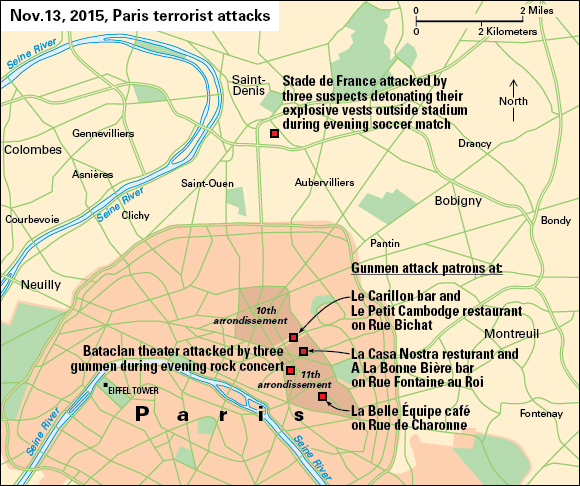
The Stade de France attack.
On the evening of November 13, three suicide bombers detonated their explosive vests outside the Stade de France during a soccer match between France and Germany. The bombers killed themselves as well as one innocent bystander. Security guards had stopped the terrorists from entering the stadium, preventing further loss of life.
The restaurant attacks.
At roughly the same time as the attack on the Stade de France, Islamist gunmen opened fire on restaurant patrons and people on the streets in the city’s 10th arrondissement (district), killing 15 people. The gunmen fled the scene before killing another 5 people outside a restaurant in the nearby 11th arrondissement. The gunmen then targeted another restaurant in the 11th arrondissement, killing 19 people. Another terrorist detonated his suicide vest in a nearby cafe, killing himself but no one else.
The Bataclan attack.
Soon after the restaurant attacks, Islamist gunmen wearing explosive vests burst into the Bataclan theater, also in the 11th arrondissement. The theater was hosting a rock concert with some 1,500 people in attendance. The terrorists fired randomly into the crowd, pausing several times to reload. As police gathered outside the theater, the gunmen secured a large number of hostages. Police then stormed the theater, prompting the terrorists to detonate their explosive vests. The three terrorists died, as did 89 people inside the theater and 1 person outside the theater. The person outside the theater was killed by a stray bullet that was fired by one of the gunmen.
Reaction.
The November 13 attacks met with worldwide outrage and condemnation. French President François Hollande called the attacks an “act of war” and announced a state of emergency. A massive effort to capture people connected to or responsible for the attacks led to a number of arrests in both France and Belgium. French warplanes increased airstrikes on Islamic State targets in both Iraq and Syria.
On June 29, 2022, a French court convicted 20 men for their roles in the Nov. 13, 2015, Paris attacks. A day later, a Belgian court convicted 10 other men for assisting the terrorists.
